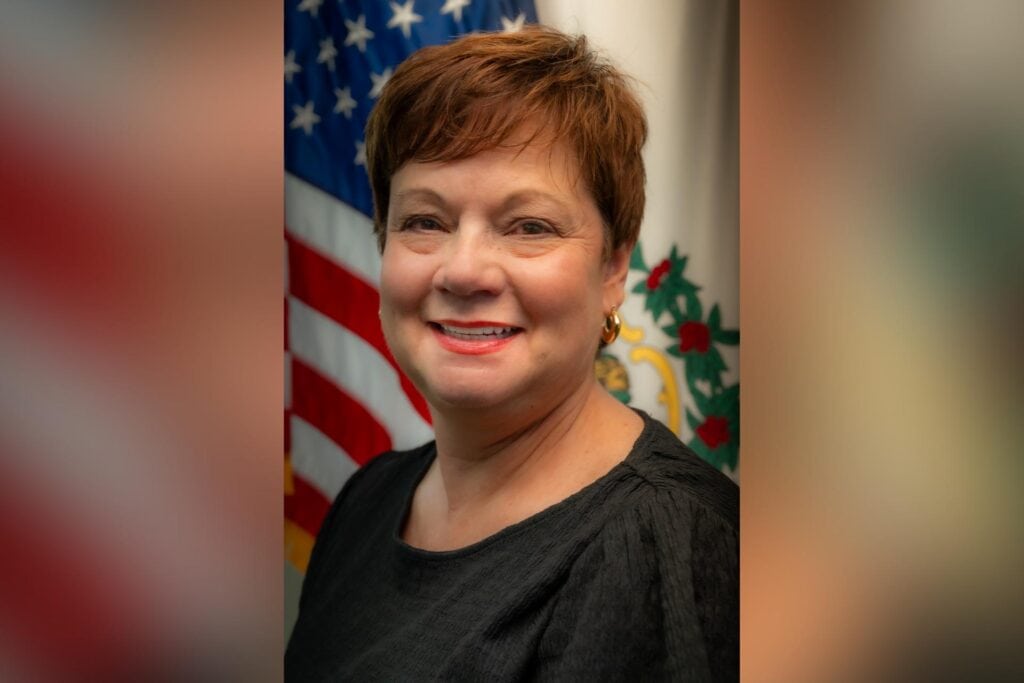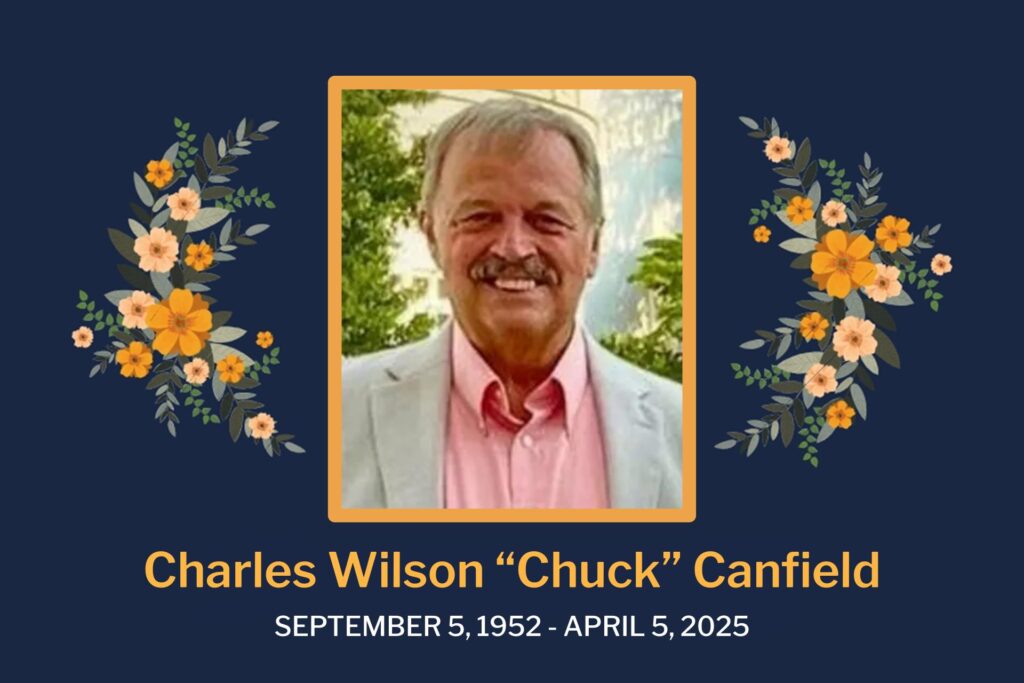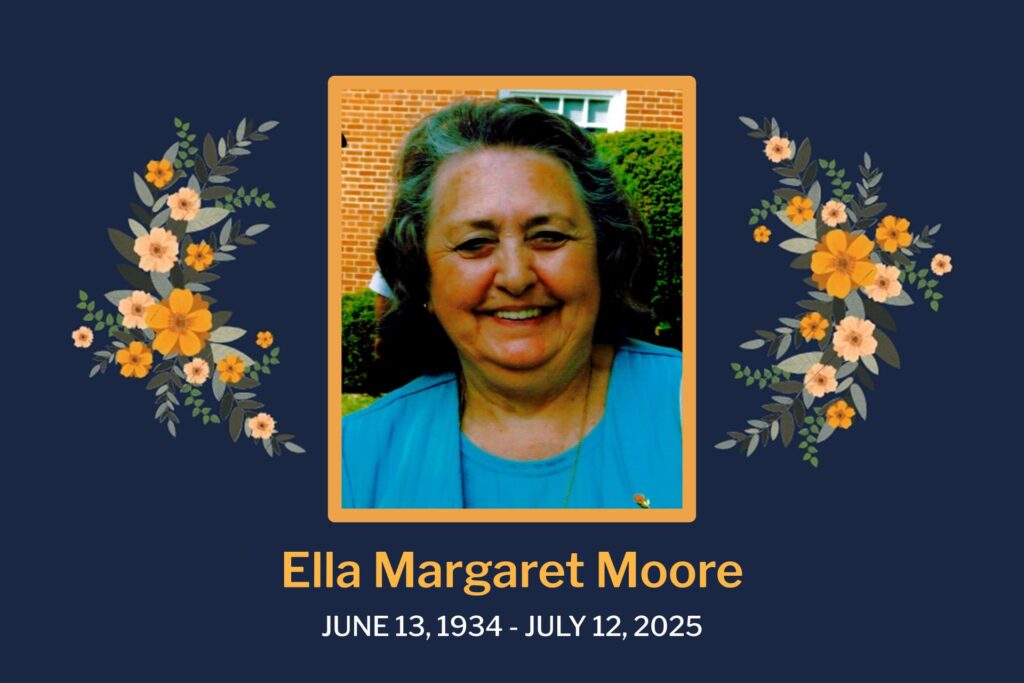Editor’s note: This story was originally published by Mountain State Spotlight. Get stories like this delivered to your email inbox once a week; sign up for the free newsletter at https://mountainstatespotlight.org/newsletter
By Amelia Ferrell Knisely, Mountain State Spotlight
MULLENS — On a weekday afternoon in March, older people gathered around tables in the Wyoming County Senior Center, first to play bingo, then to share lunch. In another part of the center, workers handed out to-go bags of the day’s meal: a bacon-chicken wrap, chips, fruit and milk.
The center in Mullens feeds nearly 200 people a day. That includes Margaret Grindstaff, who is 82 and a regular at the center.
She lives alone in nearby Corinne and relies on her Social Security income to pay bills and buy groceries. For her, the senior center is a second home — a place to play games and meet up with friends. It’s also a place where she can get a hot meal every day.
“I don’t know what my favorite meal is because I like them all,” she said with a chuckle.
Senior center staff shuttle her to doctors’ appointments, the local IGA grocery store and the center.
“I’m here every day, five days a week,” said Grindstaff, who began coming to the center 13 years ago. “This place is very special to me.”
Like many West Virginia counties, Wyoming County has a large number of older people: about 30% of the population is over age 60. The county is also one of the state’s poorest, with few grocery stores and limited transportation options.
It’s always been challenging for seniors, many of whom rely on benefits like Social Security, to afford food and the gas it takes to get to the store. Statewide, nearly one in 10 seniors struggles to get enough food; those with disabilities or raising grandkids are more likely to go hungry.
Then, the pandemic hit, pushing more than 3,000 new seniors to seek food from senior centers. And now, as consumer prices have risen 7.9% in the last 12 months (a 40-year high), the problem is even more acute. Despite a push to convince lawmakers to funnel more money to centers to help feed more seniors, lawmakers declined to do so. Now, counties are left to grapple with how to feed more and more seniors in need amid record-high food prices.
“In my opinion, the biggest challenges facing West Virginia seniors right now are the escalating costs of the bare necessities to sustain an acceptable quality of life,” said Robert Roswall, commissioner of the state’s Bureau for Senior Services.
Senior centers grapple with soaring food prices
The rising prices hitting seniors’ wallets at the grocery store are also affecting the centers that serve them meals. Meal services vary from county to county, but the increased food prices have been felt statewide.
For Jennifer Brown, who has run the Wyoming County center for decades, the pandemic has been expensive. Her center in Mullens has had to adjust to feeding seniors while keeping them safe from the coronavirus: now, there’s a “grab and go” meal option for seniors who don’t yet feel comfortable dining in person. The center also offers medical services and connects seniors with any help they need.
She wants to do more, but she needs more money.
“We would provide more than one meal a day if the funding was available,” Brown said.
Next door in McDowell County, the two senior centers have seen a 30% increase in need since the start of the pandemic. The center’s Meals on Wheels program was especially hurt. “In the middle of COVID, I had a lot of people who were truly afraid to leave their home,” Director Donald Reed said.
He’s got more people to feed, even while the price of some food has doubled.
“In September, a case of fish was $34.70, and today that same case of fish is $70.83,” Reed said, adding that prices for some fruit have also skyrocketed. “My greatest concern as a director is the cost of food.”
Lisa Martin, who runs Monongalia County’s senior center, has seen the cost of her nutrition programs rise more than $28,000 compared to last year.
“Our home delivered meals [have] increased by 11,887 meals in a one-year period,” Martin said.
“We could definitely use additional funding.”
Advocates took this argument to legislators last fall, ahead of the regular legislative session. In October, the Directors of Seniors and Community Services, a group made up of senior center directors, told lawmakers about challenges facing senior providers, including how the pandemic had forced senior centers to totally change how they served meals as seniors couldn’t eat together safely.
In that October meeting, and one with the same group of lawmakers in November, advocates made the case that these centers’ services were essential to seniors. They’re also exponentially cheaper than what the state would have to pay for nursing home care if these same seniors couldn’t stay in their homes.
“I hate to think about the shape that our seniors and hospitals and some of our long-term care facilities would have been in if we hadn’t been able to go into homes on a daily basis, provide a meal and take care of our seniors,” Bill Carpenter, who last year served as president of the directors’ group, told members of the interim Joint Committee on PEIA, Seniors and Long-term Care.
West Virginia’s senior centers, which operate as nonprofits, are funded by a mix of federal, state and local funding. The state funding runs through the West Virginia Bureau of Senior Services. Jennifer Brown from Wyoming County, who now serves as president of the Directors of Seniors and Community Services, said the group contacted both state lawmakers and the bureau to ask for an increase in funding for their nutrition programs.
The funding increase never happened.
Roswall said the senior services bureau would operate on its same budget as last year, except for a 5% increase meant for bureau employee raises. He said in an email that he didn’t know the senior center directors group had requested a funding increase during the Legislative session.
CARES Act money (federal funds meant to offset pandemic-related hardships) funneled down through the state have helped centers offset costs with feeding, Brown noted, but she told lawmakers the money wouldn’t be a permanent fix.
Sen. Mike Azinger, R-Wood, and Delegate Matthew Rohbach, R-Cabell, who chair the joint committee, did not respond to interview requests for this story.
Committee member Sen. Mike Romano, D-Harrison, did know that senior centers had asked for more money. He put the blame for inaction on the Legislature’s Republican supermajority.
“There’s no foresight that one day we’re all going to be seniors and need those services,” he said.
Feeding gaps persist
Despite the ongoing work of senior centers to feed their communities, hunger has continued to rise amid the pandemic.
In Barbour County, after a nonprofit senior center in Galloway abruptly closed at the start of the pandemic, a grass-roots organization called Brownton Helping Hands stepped in to fill in the gaps.
John Boskovic helps to pack and hand out meals at Brownton Helping Hands. He said the center’s closure had left seniors in the former coal town without many resources for food, especially those without transportation.
“What’s at stake for the seniors is their health. If they’re not eating well, then diseases like COVID could be debilitating or fatal,” Boskovic said.
Romano, who is not running for re-election this year, was frustrated by lawmakers’ overall inaction regarding seniors during the session. West Virginia has the second largest percentage of elderly residents in the nation, yet lawmakers focused most of their time and efforts elsewhere.
A bill he sponsored that would have increased benefits for state retirees was never taken up in committee. And in the House of Delegates, a bill from Delegate Chad Lovejoy, D-Cabell, that would have provided money for seniors to use at the state’s farmers markets didn’t get any traction.
“There is no reason we shouldn’t put [seniors’] needs first and make sure they are well fed and that they can take care of themselves after they leave the workforce … they’ve earned it,” Romano said.
Reach reporter Amelia Ferrell Knisely at ameliaknisely@mountainstatespotlight.org














